About Recovery Unplugged Austin
Sometimes, recovery meets music and healing occurs. Recovery Unplugged in Austin, Texas is one such place. They offer integrative and music focused addiction recovery programs for adults to include medical detox and inpatient programs, a complete continuum of outpatient care, and robust aftercare support.
Healing Through Music
With the help of music based therapies and research informed practices the center supports clients as they get back to who they were before addiction while also learning how to stay sober for the long term. Their unique treatment approach and caring environment make it an ideal place for clients to recover and transform their lives.
Music therapy is incorporated into every aspect of treatment. Clients might engage in songwriting, live performance, and listening exercises that aid in emotional processing and self expression.
Past clients note that this immersive musical experience renewed their interests and enabled them to address past traumas in a safe and familiar way. This is the reason the center may be a good choice for those clients who are looking for more than just a conventional form of treatment.
A Support System for the Rest of Your Life
At Recovery Unplugged, you’ll find a strong sense of community that endures long after you leave the program. To ensure that the clients are well connected after the completion of the treatment, there are weekly alumni meetings and special monthly events.
Past clients praise the significant and ongoing peer support they receive. Many credit these alumni services and social connections with helping them maintain their sobriety and rebuild their lives.
Addiction Treatment Programs
Alcohol Rehab
If you’re ready to overcome alcohol use disorder, an alcohol rehab in Texas can give you the tools you need. High-quality treatment lays a foundation for sobriety and helps prevent relapses by giving you new ways of thinking, better coping skills, and a better understanding of key life skills such as emotional regulation and communication.
Dual Diagnosis
Many people with addiction issues also have a mental health diagnosis, which is known as a dual diagnosis. Be sure to find a rehab in Texas that can treat both. A mental health diagnosis can feed into an addiction, making both worse. In a dual diagnosis program, these concerns are addressed along with typical evidence-based detox, inpatient treatment, and outpatient care.
Opioid Addiction
The goal of an alcohol rehab in Texas is to give you the tools and skills you need to achieve long-term recovery. Whether you need detox, inpatient treatment, or outpatient care, an opioid program will help you build a new lifestyle based on healthy coping mechanisms, better relationships, and a new way of thinking about life.
Adult Program
An adult program in Texas addresses the unique need of adults, such as finding secure housing, building a career, and raising a family. Adults often have challenges related to their careers, raising a family, and handling responsibilities. These concerns are addressed during evidence-based detox, inpatient treatment, and outpatient care.
LGBTQ Friendly Rehab
Offering specialized substance use treatment for the LGBTQ+ community, LGBTQ+ friendly rehabs in Texas provide a safe space to work on recovery. Some of the common services will include counseling and classes on coping skills, emotional management, communication, and other key life skills. LGBTQ+ friendly programs can provide inpatient or outpatient treatment.
Military Rehab
A military rehab in Texas provides an understanding environment that makes it easier to work on your long-term recovery. Service members and veterans have often experienced trauma civilians can’t imagine. These concerns are addressed along with typical evidence-based detox, inpatient treatment, and outpatient care.
Men's Rehab
Choosing a men’s rehab in Texas can be a great way to manage gender-specific issues while also addressing substance use. Men often have questions about building their careers, being fathers, and having healthy communication styles. These concerns are addressed along with typical evidence-based detox, inpatient treatment, and outpatient care.
Women's Rehab
If you’re a woman struggling with substance use, consider a women’s rehab program in Texas. Women often have questions about building their careers, raising children, and building healthy relationships. These concerns are addressed along with typical evidence-based detox, inpatient treatment, and outpatient care.
Young Adult Rehab
Young adult rehabs in Texas address a wide range of substance use issues while also helping clients transition into adulthood. Young adults often have questions about starting their careers, having a family, and living independently without overspending. These concerns are addressed along with typical evidence-based detox, inpatient treatment, and outpatient care.
Insurance Coverage
Self-pay options
When you use self-pay for rehab in Texas, you have a chance to choose any treatment center you like. Self-pay, also known as private pay, involves writing a check, using a medical loan from a bank or credit union, or sending money electronically. Payment arrangements may vary depending on the level of care.
Private insurance
When you’re planning to use private insurance to pay for rehab in Texas, there are a few details to keep in mind. Your insurance plan can cover some or all of the cost of treatment. You’ll need to contact your insurer to find out what centers are in-network with your plan and what out-of-pocket costs you may be responsible for.
Financing available
When looking for ways to pay for rehab in Texas, consider asking if financing options are available. Financing options such as payment plans, scholarships, grants, and even medical loans make rehab more accessible. You can use these methods to pay for detox, inpatient treatment, outpatient care, and more.
Levels of Care
- 1
Detox Treatment
The first step to a substance-free lifestyle is detox in Texas. When you are free of all substances, which may take around a week, you’ll be ready to start building a bright future where you can chase your dreams and create the life you love.
- 2
Inpatient Rehab
There are multiple options for addiction treatment in Texas. During inpatient treatment, you live at the facility and are able to focus on creating a new way of life. Inpatient treatment programs generally last 30 to 90 days and include counseling and classes on emotional regulation, coping strategies, and other vital life skills.
- 3
Outpatient Rehab
Attending outpatient treatment in Texas allows you to get evidence-based care without living in the facility, helping you establish long-term recovery. Finishing residential treatment is a big step, and outpatient care allows you to have support while you learn to apply your new skills and habits in real life situations.
- 4
Aftercare Support
Overcoming substance use is a lifelong process. Aftercare in Texas gives you the support you need to stay sober. Relapse prevention is a lifelong project, and having aftercare support like sober housing, recovery-focused activities, and a place to build healthy friendships can make all the difference.
- 5
Sober Living Homes
Sober living in Texas is focused on giving you a substance-free place to live, giving you the support you need to stay sober long-term. Relapse prevention is a lifelong project, and having support like sober living, recovery-focused activities, and a place to build healthy friendships can make all the difference.
- 6
Partial Hospitalization Program
Partial hospitalization programs (PHPs) in Texas allow clients to live at home or in a sober living facility while attending an intensive treatment program. During PHP treatment, clients are able to work on their recovery through counseling, activities, and holistic treatment like mindfulness, art therapy, and more
- 7
Intervention Services
Sometimes your friend or loved one needs intervention services in Texas before they’ll agree to begin treatment. Intervention services can be exactly what your loved one needs to realize the impact of their substance use on others and their need for rehab.
Therapies
Cognitive Behavior Therapy
In Texas, cognitive behavioral therapy (CBT) helps you identify wrong thinking that can create impulsive actions. This makes it much easier to reach long-term recovery. As you learn to identify thought disortions, your confidence in your ability to manage a wide variety of situations will grow. You’ll have the tools you need to address problems and manage triggers in a healthy way.
Creative Arts Therapy
If you’re struggling with substance use in Texas, creative arts therapy can help you work through emotions so you can make positive changes. During creative arts therapy, you’ll work through activities that will help you understand and express deeply held feelings. Understanding these root issues can make it easier to create positive changes.
Dialectical Behavior Therapy
In Texas, dialectical behavioral therapy (DBT) helps you learn healthy coping strategies and build your ability to manage stressful situations. This makes it much easier to reach long-term recovery. As you learn helpful coping strategies, your confidence in your ability to manage a wide variety of situations will grow. You’ll have the tools you need to address problems and manage triggers in a healthy way.
Experiential Therapy
In Texas, experiential therapy is a holistic therapy that is widely used in addiction treatment. Experiential therapy is a complement to traditional evidence-based treatment approaches and may be a part of inpatient treatment, outpatient care, or both
Family Therapy
Attending family therapy in Texas is a way to address broken relationships and dysfunction, helping you establish long-term recovery. Substance use treatment includes detox, inpatient treatment, and outpatient care, and family therapy may be a part of each of these stages. The goal is to help families address past events and broken relationships and develop healthy ways of relating to each other.
Group Therapy
Attending group therapy in Texas is a way to overcome shame and isolation, helping you establish long-term recovery. Sessions generally last 60 to 90 minutes and give you a chance to discover others’ experiences, hear about the impact of substance use, and learn important new life skills.
Individual Therapy
During individual therapy in Texas, clients work with a professional to address specific individual concerns. During individual therapy, you have the freedom and confidentiality to share personal issues and past experiences that may impact your substance use. Your therapist will help you work through those concerns and develop new ways of handling them.
Trauma Therapy
Trauma-informed therapy in Texas can provide a way to process past events and create better coping strategies as you work through substance use treatment. Because trauma can be a significant trigger for substance use, trauma-informed therapy will help you understand what happened to you, realize that it was wrong, and create a healthier way of relating to that memory and the emotions you feel.
Fitness Therapy
Accreditations
Location
Contact Recovery Unplugged Austin
Top Drug Rehab Centers in Texas
-
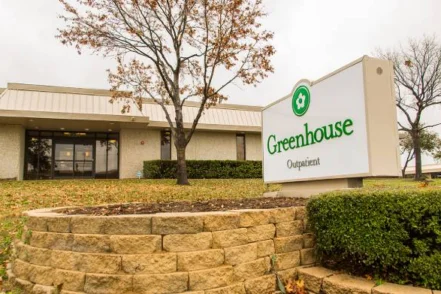 Texas
TexasGreenhouse Outpatient Treatment Center
2301 Avenue J Arlington, Texas 76006
-
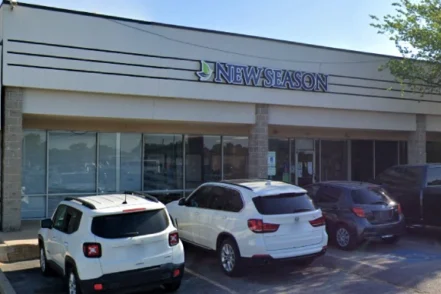 Texas
TexasNew Season Dallas County Treatment Center
123 East Colorado Blvd Dallas, Texas 75203
-
 Texas
TexasStonegate Center
7510 Fm 1886 Azle, Texas 76020
-
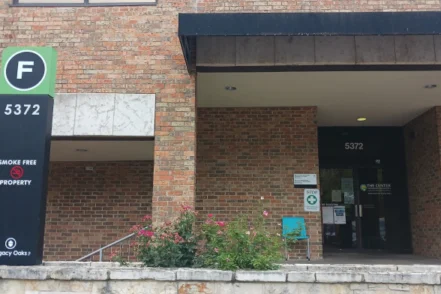 Texas
TexasCenter for Healthcare Services Northwest Clinic
5372 Fredericksburg Road, Building F San Antonio, Texas 78229
-
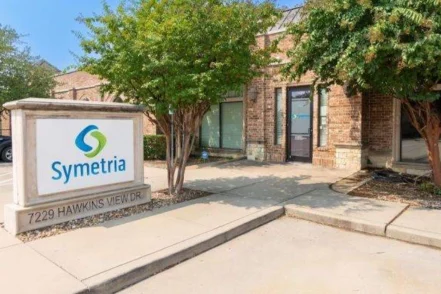 Texas
TexasSymetria Recovery Fort Worth
7229 Hawkins View Drive Fort Worth, Texas 76132
-
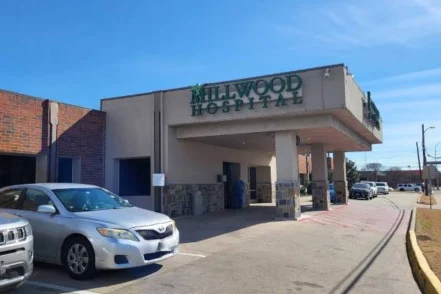 Texas
TexasMillwood Hospital
1011 North Cooper Street Arlington, Texas 76011
-
 Texas
TexasEl Paso Behavioral Health System
1900 Wyoming Avenue El Paso, Texas 79903
-
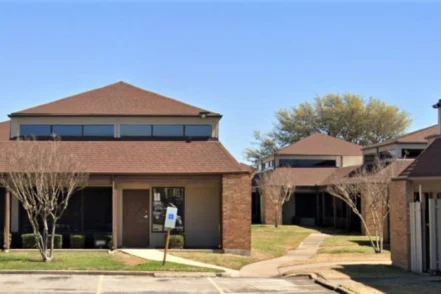 Texas
TexasChemical Dependency Health Services CDHS
214 Billings Street, Suite 240 Arlington, Texas 76010
-
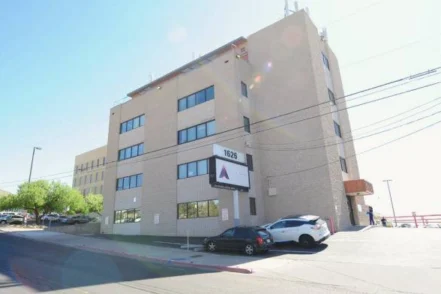 Texas
TexasAliviane Imastar
1626 Medical Center Street El Paso, Texas 79902
-
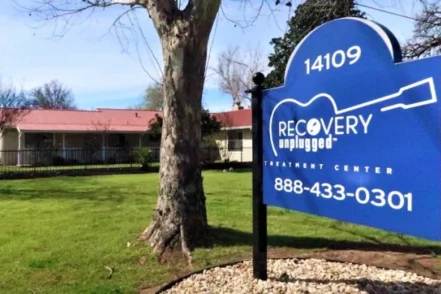 Texas
TexasRecovery Unplugged Austin
14109 Fm 969 Austin, Texas 78724
-
 Texas
TexasDoris Miller Department of Veterans Affairs Medical Center
4800 Memorial Drive Waco, Texas 76711
-
 Texas
TexasLa Hacienda Outreach
7400 Blanco Road, Suite 129 San Antonio, Texas 78216
-
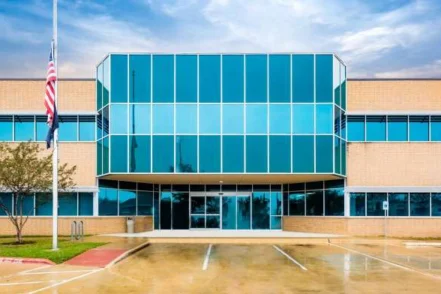 Texas
TexasSymetria Recovery College Station
1651 Rock Prairie Road, Suite 101 College Station, Texas 77845
-
 Texas
TexasRiverwalk Ranch
6960 Dick Price Road Mansfield, Texas 76063
-
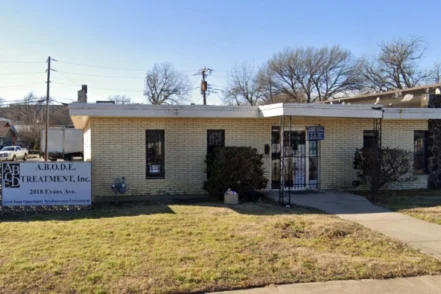 Texas
TexasABODE Treatment Fort Worth Evans Avenue
2018 Evans Avenue Fort Worth, Texas 76104

